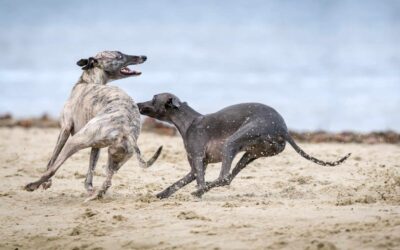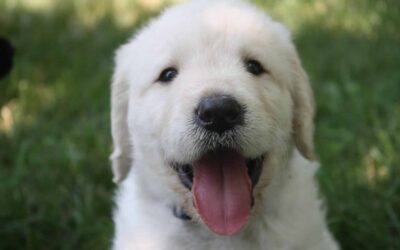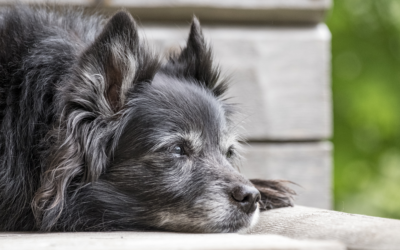How to Socialize Your Dog?

Training and socializing your dog is a significant undertaking that is best led by taking your new puppy to positive puppy training classes with a professional dog trainer. By enrolling in puppy training classes, you’ll also be socializing your new puppy.
The simple fact is that without socialization and positive dog training, you’re more likely to end up with behavioral issues- and ultimately, your pup may be too difficult for you to handle, most especially if he’s a large dog breed that’s rambunctious. This means that by taking your puppy or adult dog to training classes, you’ll help your dog get exposure to the world so that it can become a wonderful and well-trained companion.
Socialization
Just like children, puppies need exposure to the world to understand what it’s all about. They need to see different environments, hear different sounds, and be exposed to different people to grow up not afraid of new experiences. With socialization, your dog will become a well-adjusted dog that enjoys company and being around people and other pets.
The Socialization Process
This begins during the first several weeks of puppyhood. Pups learn to share with their littermates and to accept the human touch. They also will learn how to play appropriately and show submissiveness to their mom.
As puppies begin to get older, they will start to interact with the outside environment and enjoy the company of family members and house guests. They will hear vacuum cleaners, cars, and planes overhead and even get to meet neighborhood pets when you take them out for a walk.
Pups that are not socialized will have behavioral problems when they reach adulthood. If your dog is not socialized and leaves his home’s safety, he may display signs of aggressiveness and anxiety and even have difficulty focusing on you. He may also be fearful of other dogs and strangers.
Socializing your puppy is the best thing that you can do for your new puppy and even for a senior dog if you’ve recently adopted. In the beginning, your puppy may act nervous, but he’ll soon be fine.
The easiest way for him to get over his initial fears is by being relaxed and enthusiastic about whatever is going on. Your dog will have fun if you do. You can visit the dog park or beach with some friends and their dogs, have a picnic, take some photos and get your pup used to being with a small crowd of people and pets. It’s also good to use a diary and take photos so that you can go back and see how your dog was before he was socialized and afterward. You’ll note different body postures and behaviors when you start introducing your furry best friend to other dogs and people and then see how relaxed he’s become after a few months of doing this regularly. If you take photos, this will help you see your dog’s progress after a few months.

Older Dogs and Socialization
The American Kennel Club (AKC) adds, “If you’ve acquired a dog who is no longer a puppy, you can still help him associate new or fearful situations with a positive experience, even though you’ve missed the crucial puppy socialization period. Slowly reintroducing the dog to new sights, smells, and sounds, with careful supervision and an emphasis on positivity in the form of praise and treats, can help him overcome his fears or hesitation. (Severe cases of fearfulness should be treated with the help of a veterinarian and/or animal behaviorist.).”
If you have a senior dog that needs socialization, it’s never too late to start. The AKC Canine Good Citizen (CGC) is an excellent step for new dogs that have not received sufficient training in the past. This is a two-part course designed to help you and your dog be the best you can be–together. THE CGC has been around since 1989, with over 1 million dogs and their owners participating in CGC.
Dogs will learn to master ten basic skills that are beneficial in instilling confidence and good manners in and out of the home environment. The AKC adds that not only does CGC help to create a long-lasting trust between you and your furry best friend, but it also helps you in going beyond the basics by laying a good foundation for other AKC activities like dog sports, agility, obedience, tracking, and performance events.
How to Positively Train Your Dog to Behave Around Guests?
Victoria Stilwell, via Claudia Bensimoun, Animal Wellness Magazine, explains that by understanding your dog’s mindset, you can help ensure he’ll observe proper “petiquette” during the holidays or any other time visitors are expected.
“A goal is to make yourself, your guests, and your environment ‘boring,'” says renowned positive trainer Victoria Stilwell. “If the dog feels it’s no big deal when someone new comes through the door and sits on his favorite couch, or when there are a lot of people around the dining room table, he won’t feel a need to respond.” She also adds that you should “Work well in advance on your dog’s greeting behavior and get him used to seeing new people in the house.”

No Jumping
Stilwell explains that most dogs jump up on guests because they’re excited, which means getting attention. “Most dogs jump on people through sheer excitement and because it is an effective means of getting attention.” “But some jump because they feel uneasy when someone new comes into the home, and jumping is an effective way to cope with that discomfort. The best way to stop your dog from jumping up is to ignore her while she’s doing it.” Stilwell says that you should do the following five training steps:
- Each time your dog jumps up at you, turn your back.
- Do not look at, talk to, or touch your dog at any time. Fold your arms in front of you so that you become bored.
- When he stops jumping, wait for three seconds of four paws on the floor, then reward the self-control with your attention.
- If he jumps again, repeat the exercise.
- Practice this with friends and family members for consistency.

Private Space and Dogs
“Aggressive or shy dogs need to be put in another room away from holiday guests,” says Dr. Nick Dodman of the Animal Behavior Department at the Cummings School of Veterinary Sciences via Claudia Bensimoun, Animal Wellness magazine. “Keep in mind that a stressed or reactive canine is much more likely to bite someone than a dog who loves being around people.”
Dr. Nick Dodman says, “Small dogs feel especially vulnerable because of their size and feel the need to defend themselves from people who loom over them as they bend down to say hello “If you have a reactive dog of any size, use safe management techniques to avoid any issues. If you can’t contain your dog, tell your guests not to pay him any attention when they first come in. If the dog continues to be fearful, tell visitors to ignore him for the duration of their stay. This takes the pressure off everyone and gives them much-needed space.”
Dr. Dodman also adds that putting your pup in another part of the house, away from where your guests are, and giving him something to keep him occupied will help. If your pup is going to be on his own for an extended period, it’s essential to give him toys to keep him mentally stimulated.
Socialization is just as important as veterinary care, pet insurance, healthy nutrition, and regular exercise, and you can never over-socialize. The more your pup is exposed to people and other pets, the better he’ll be around them. Here are some tips.
- Expose your pup after he’s been vaccinated to other pets in the neighborhood.
- Take your dog for car rides and sit at a Starbucks, allowing him to interact with other people and pets.
- Prepare your pup for his veterinary visits by getting him used to regular grooming, touching his paws and ears, and giving him plenty of praise and rewards. Your pup should develop a positive association with handling so that he’ll be less stressed out when going to the veterinarian.
- Visit your dog park a few times a week. Go early morning when there may be fewer dogs and people if your pup is nervous.
- Keep your pup away from aggressive dogs or nervous people.
Final Thoughts
To become a well-rounded, happy, and confident dog, your pup or adult dog should be exposed to all kinds of situations, pets, and people. If you don’t socialize your puppy from a young age, he may become fearful, anxious, and aggressive.
The best time to begin socialization is during the early months of your pup’s life. However, if you’ve recently adopted a senior dog from a shelter, you can start from the time you bring him home.
Socializing your new puppy or senior dog will help him develop a positive association with the world around him. As your pup becomes more comfortable in new environments and around different people and pets, you can start off by removing his leash and allowing him to play with a few dogs for a short time to ensure that your pup handles the socialization process well.
After a few off-leash visits, you can gradually extend off-leash playtime at the dog park. As usual, start off with puppy kindergarten and a professional, positive dog trainer to ensure a positive experience.
Trying to find the right vet for your companion? You can read more about choosing a vet that gets your pet here.



